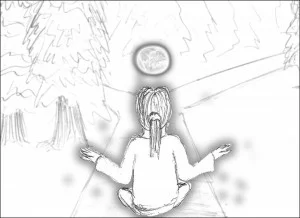
What is it about us humans? We always want more. We are inherently prone to dissatisfaction and constantly yearn for something more “perfect” — the perfect mate, the perfect job, the perfect house, the perfect body. Even those who live in gorgeous mansions by the sea fantasize about getting a more perfect garden or yacht.
Maybe our human tendency toward dissatisfaction has had a useful evolutionary purpose. If we were easily satisfied, we might not have had the motivation to push the limits of innovation, from finding better ways to cultivate food and build housing, to achieving a more just form of society. But just as with other emotional habits, the habit of always wanting or at least secretly yearning for more can also bring sadness and disappointment.
As I have gotten older, I have noticed that an expectation of perfection decreases with age and maturity. Some of it is just due to life experience. We discover that perfection is usually impossible. We may consciously decide to “settle for less” — but really, “settling” also hides within it a yearning for more.
No, what I mean is that with wisdom comes a realization that the constant quest for perfection is a trap, and that the love for and trust in what is can be a gift.
I’m not saying that we should be happy with horrible situations and not try to correct them. But rather than approaching life with dissatisfaction, we can assume an attitude of acceptance that simultaneously opens us up to more possibilities and often a more positive outcome. This attitude is also a more ideal position from which to envision and create — to exert what I have called active consciousness.
In my experience, a key to achieving this more productive state is to begin by looking within. In particular, our own personal perfectionism and dissatisfaction is usually rooted in a dissatisfaction with ourselves.
It’s amazing but true — if we begin to love and accept ourselves more, we also begin to love and accept others. If we have more compassion for ourselves, we have more compassion and forgiveness for others. And even if we (as an act of self-love) decide to remove ourselves from a particular situation, our ability to do so with an internal attitude of compassion and forgiveness enables us to move on to something new and better, rather than remaining mired in the past.
Ironically, by letting go of the expectation of perfection, we create an even more “perfect” world. And even if it remains the same old world, we are now able to realize more deeply just how perfect it already is.


